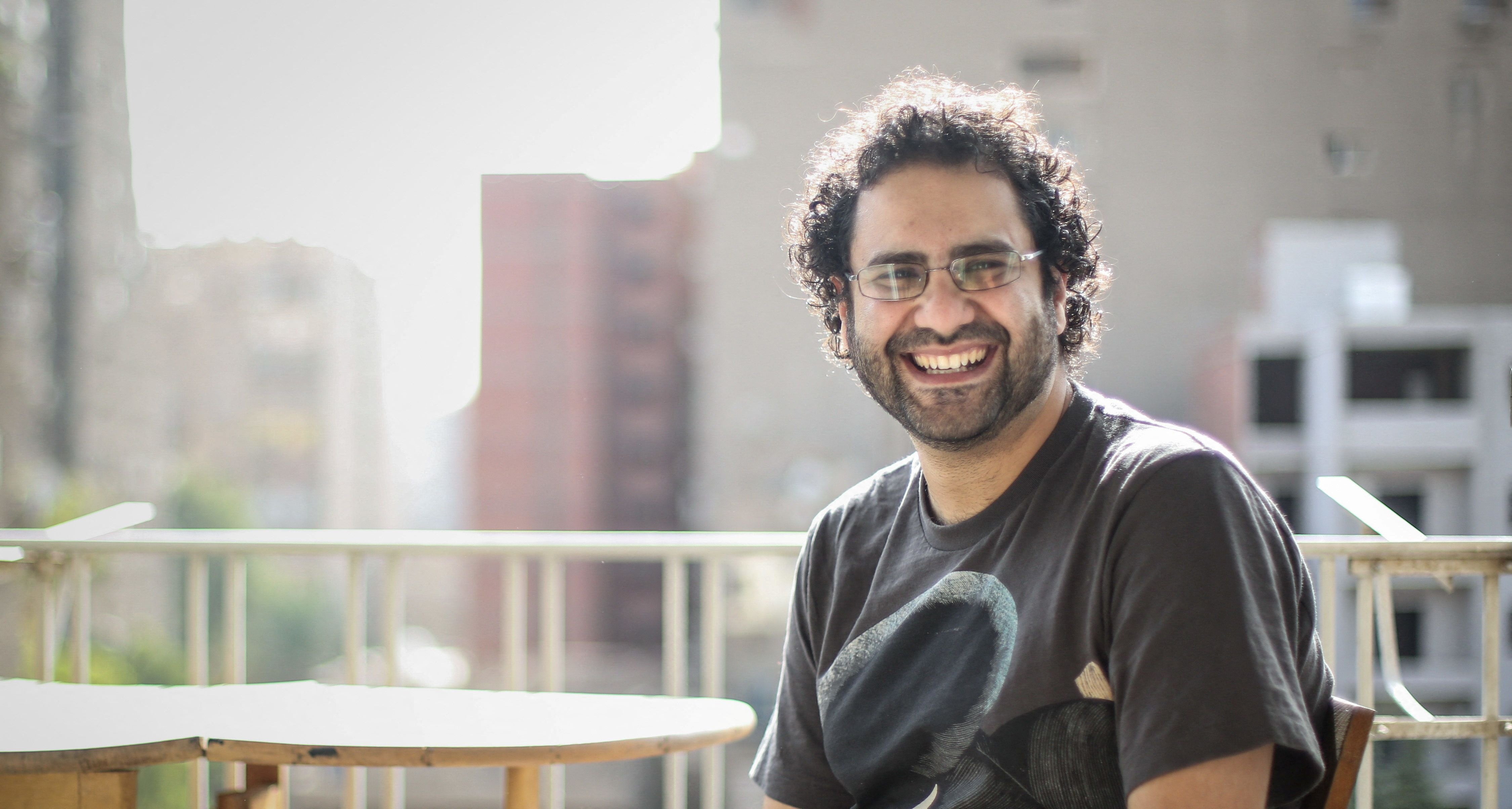Alaa Abd el-Fattah can only live a few more days – the UK must act
If a British citizen is allowed to die of hunger and thirst in a squalid cell while our PM is in the country cosying up to Egyptian officials, what does that mean for the safety of any British citizen in Egypt, asks Bel Trew


Time isn’t running out: it has run out. Alaa Abd el-Fattah, a British citizen and one of Egypt’s most prominent pro-democracy activists, has stopped drinking water in protest at his unjust detention in Egypt (he is an Amnesty prisoner of conscience).
This is after the software developer, who has spent most of the last decade behind bars, escalated a six-month hunger strike. He can only live a few more days. If he dies, the consequences will ricochet well beyond the four walls of his prison cell, well beyond the grief of his family, well beyond the shores of Egypt.
Our prime minister, Rishi Sunak, is in Egypt right now on his first major diplomatic trip abroad since assuming office, as he attends the Cop27 summit alongside dozens of world leaders in Sharm el-Sheikh.
Cairo is supposedly one of our closest allies – the UK is also the single largest investor in Egypt. Yet despite this, Egypt’s foreign minister effectively told CNBC on Monday night that Alaa wasn’t on a hunger strike, and that he wasn’t a proper British citizen. Both of these claims are patently false.
And so, against these peddled untruths, if a British citizen is then allowed to die of hunger and thirst in a squalid cell while, powerless, our prime minister is in the country cosying up to Egyptian officials, what does that mean for the safety of any British citizen in Egypt?
What does that mean for our relationship with Cairo? What does it mean for the UK’s standing internationally (and our choice of allies)?
To quote a recent article written by John Casson, the UK’s former ambassador to Cairo, about Britain’s approach to the world post-Brexit: “It seems we have become so eager for friends outside Europe that we have lost our moral bearings and forgotten how to get results.” Our “pandering” will cost a British man his life, Casson added on Twitter. The world will see and know.
Alaa’s death will also have tricky consequences for Egypt, a country that has loudly trumpeted its hosting of Cop27. Amnesty International’s secretary general, Agnes Callamard, said on Monday that if Egypt does not act, Alaa’s “death will be holding on to Cop27, it will be in every single discussion”.
And so in many ways, Alaa’s hunger and water strike has achieved what he wanted: it has put Egypt’s terrible rights record under a blistering spotlight, right in the middle of a UN summit that Cairo is so proud to be hosting.
Alaa, who is currently serving a five-year sentence for sharing a Facebook post criticising prison conditions, is not the only person to have been detained wrongfully. Since Egypt’s president Abdel Fattah al-Sisi stormed to power after overseeing a military coup in 2013, tens of thousands of people have been arrested, and hundreds of protesters have been killed.
In the lead-up to Cop27, Amnesty documented more than 150 additional arrests.
And so this is about much more than injustice against one man. So much is at stake. If he dies, it cannot be business as usual. The UK must act before it is too late.
Yours,
Bel Trew
International correspondent






Join our commenting forum
Join thought-provoking conversations, follow other Independent readers and see their replies
Comments